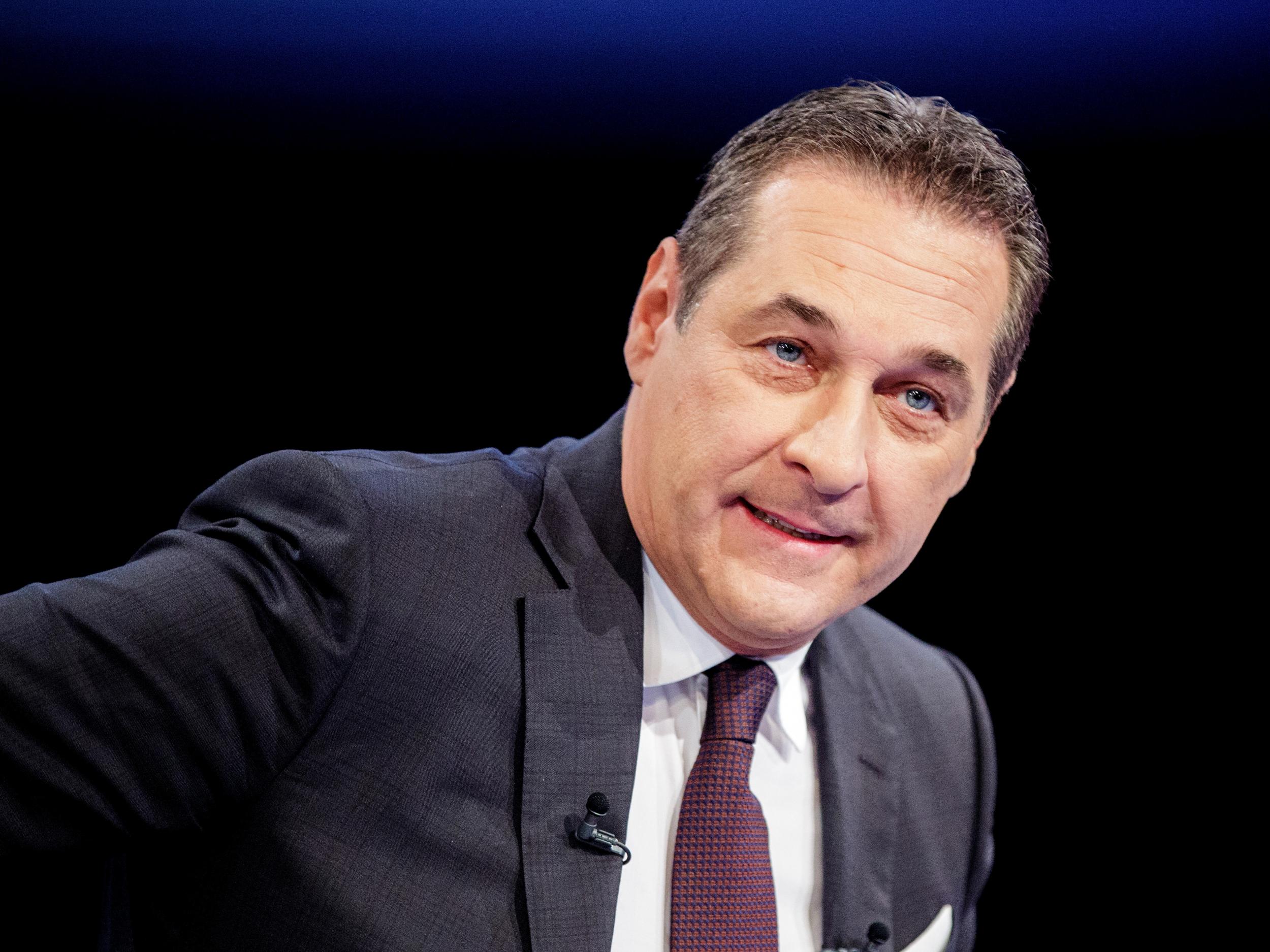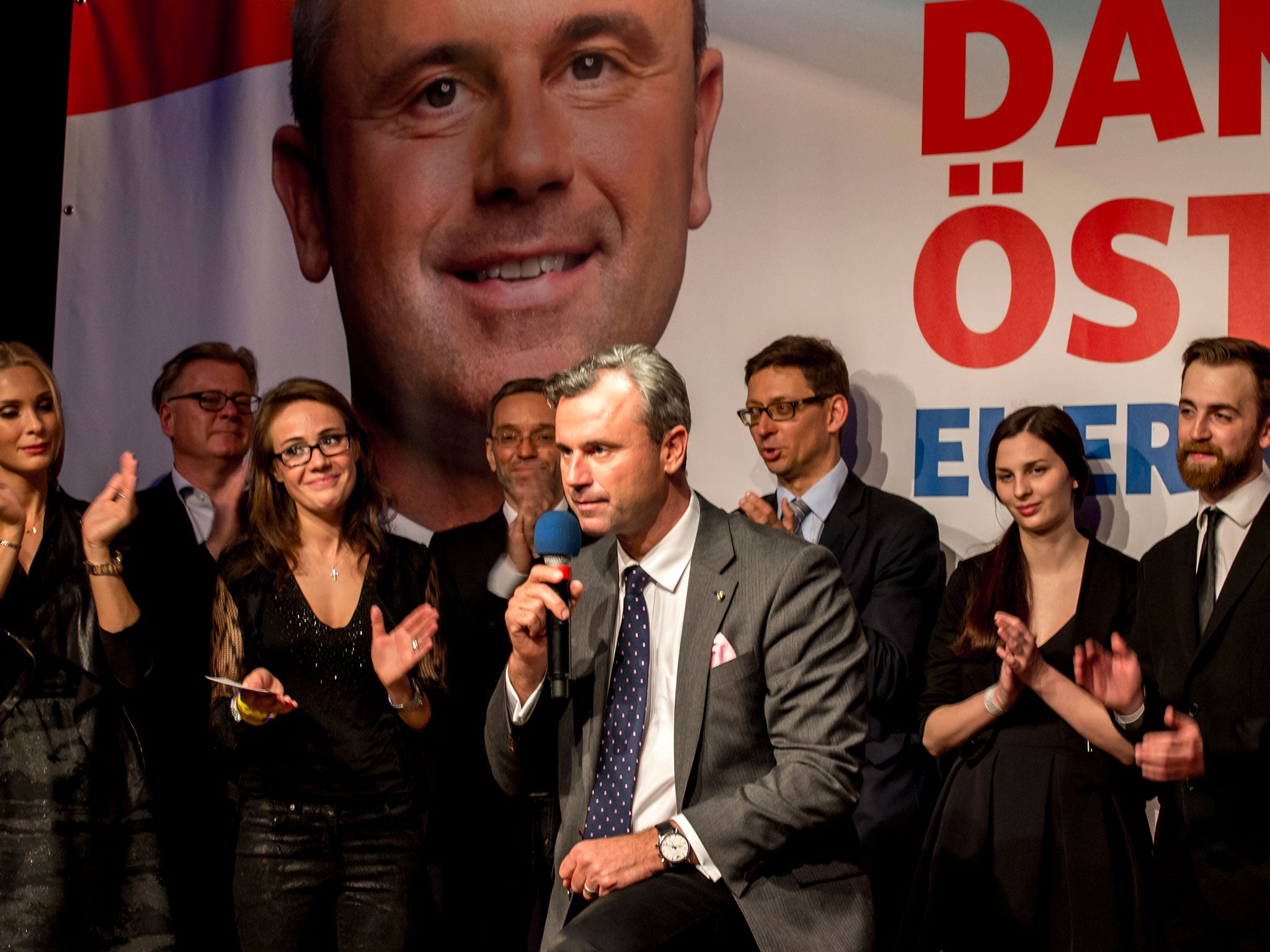Austrian elections: Far-right FPO poised to enter government
Austria was hit by sanctions from the EU last time the FPÖ joined a government

Your support helps us to tell the story
From reproductive rights to climate change to Big Tech, The Independent is on the ground when the story is developing. Whether it's investigating the financials of Elon Musk's pro-Trump PAC or producing our latest documentary, 'The A Word', which shines a light on the American women fighting for reproductive rights, we know how important it is to parse out the facts from the messaging.
At such a critical moment in US history, we need reporters on the ground. Your donation allows us to keep sending journalists to speak to both sides of the story.
The Independent is trusted by Americans across the entire political spectrum. And unlike many other quality news outlets, we choose not to lock Americans out of our reporting and analysis with paywalls. We believe quality journalism should be available to everyone, paid for by those who can afford it.
Your support makes all the difference.Austria’s far-right looks set to be part of the country’s next government, with polls showing it on course to hold the balance of power ahead of elections this weekend.
The last time the Freedom Party (FPÖ) entered government in the year 2000 the EU’s other member states imposed diplomatic sanctions on Austria in the hope of forcing the extremists out of power.
Now, polling in second place at around 25 per cent of the vote, the party is confident of returning to power as a kingmaker, and may be on the brink of matching its strongest showing ever.
Last year the FPÖ narrowly missed out on capturing Austria’s presidency for the first time, with its candidate Norbert Hofer defeated in the final round after a dramatic showdown with Green member Alexander Van der Bellen.
Austria’s political system is different from that of other European countries in that its mainstream parties are happy to do coalition deals with the far-right. In June, even the centre-left Social Democrats (SPÖ) announced they would work with the FPÖ – dropping a four-decade policy of having nothing to do with them.
The year 2000 sanctions imposed on Austria by the EU’s then 14 other member states were quickly withdrawn after warnings that the measures might be counter-productive and actually stoke up nationalist sentiment in the central European state. The FPÖ has not gone away, however.
In common with many European far-right parties, the FPÖ has in recent years pivoted towards attacking Muslims and Islam.
Also in common with most of its sister parties, it has been rocked by scandal. Originally led in the 1950s by Anton Reinthaller, a former Nazi and SS officer, alleged associations with the former regime continue to this day. In the week leading up to the poll the party suspended a member for allegedly saluting Hitler during a council meeting.
The councillor, a party member from the southern state of Styria, has not been named in accordance with local privacy laws. It is illegal in Austria to glorify Hitler or Nazism. The party says its it is taking the allegations very seriously.

At the start of this year the party leader Heinz-Christian Strache claimed Austria was being “Islamified” and called for a ban on what he referred to as “fascistic Islam” – including Muslim symbols.
Echoing the far-right in Germany, the FPÖ has campaigned against the grand coalition government of the centre-right and centre-left, with posters bearing the slogan “the red-black coalition is the big problem” portraying it as a political stitch-up.
An average of major pollsters currently shows the conservative ÖVP with around 33 per cent, and the FPÖ with 25.5 per cent. The Social Democrats have 24.4 per cent, while the liberal party NEOS polls around 5 per cent, as do the Greens.
The FPÖ would have to win 26.9 per cent of the vote to see its strongest showing ever – well within the margin of error.
Though the Austrian party’s rise is less historic than that of the German AfD’s – which was the first far-right party in the Bundestag in half a century – its result will if anything have a more direct effect on Austrian politics.
Join our commenting forum
Join thought-provoking conversations, follow other Independent readers and see their replies
Comments